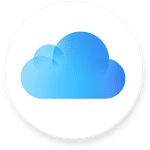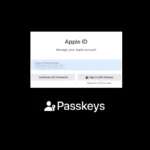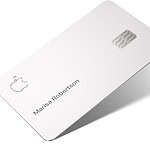Apple Training offers a range of courses and certifications for IT professionals and developers. These programs help people learn how to use, support, and manage Apple devices and software. Apple’s self-paced online courses let students learn at their own speed and take exams from home or work.
The training covers topics like device support, deployment, and app development. Students can earn digital badges and certifications to show their skills. These credentials can help IT pros stand out in the job market and advance their careers.
Apple’s training programs use up-to-date content to teach the latest Apple technologies. The courses include hands-on exercises to help students practice what they learn. This practical approach helps people gain real-world skills they can use on the job.
Level Up Your Apple Skills
Apple Training Resources: A World of Knowledge
Want to master your Apple devices and software? Apple offers a wealth of training resources to help you become an expert, whether you’re a beginner or a seasoned pro. These programs cover a wide range of topics, from basic iPhone use to advanced app development.
Apple Support Website
The Apple Support website is a treasure trove of information. You’ll find detailed guides, how-to articles, and troubleshooting tips for all Apple products. It’s a great starting point for learning the ins and outs of your devices and getting answers to common questions.
Apple Store Workshops
Apple Stores offer free workshops on various topics, like photography, video editing, and coding. These hands-on sessions are led by Apple experts and provide a fun and interactive way to learn new skills. Check your local Apple Store’s schedule to see what workshops are available.
Apple Books
Apple Books has a vast collection of books and manuals on Apple products and software. You can find guides for beginners, in-depth tutorials, and even certification study materials. Many of these resources are available for free, making it easy to learn at your own pace.
Apple Developer Program
For those interested in app development, the Apple Developer Program is an essential resource. It provides access to development tools, documentation, and support to help you create your own iOS, iPadOS, macOS, tvOS, and watchOS apps. You can also join the developer community to connect with other developers and share your knowledge.
Apple Professional Training
Apple offers professional training and certification programs for individuals and organizations. These programs cover a wide range of technical topics, including IT support, app development, and creative workflows. Earning an Apple certification can boost your career prospects and demonstrate your expertise.
Online Courses and Tutorials
Beyond Apple’s official resources, you can find a wealth of online courses and tutorials from third-party providers. Platforms like Udemy, Coursera, and Skillshare offer courses on everything from basic iPhone use to advanced coding techniques. These courses can be a flexible and affordable way to learn new skills.
Choosing the Right Training
With so many options available, it’s important to choose the training that best suits your needs and goals. Consider your current skill level, learning style, and desired outcome. If you’re a beginner, start with the Apple Support website or Apple Store workshops. For more advanced learning, explore Apple Books, the Apple Developer Program, or professional training options.
Training Options at a Glance
| Training Type | Description | Best For |
|---|---|---|
| Apple Support Website | Free online resources, guides, and troubleshooting tips | Beginners, quick answers, troubleshooting |
| Apple Store Workshops | Free in-store sessions led by Apple experts | Hands-on learning, specific topics, interacting with others |
| Apple Books | Books and manuals on Apple products and software | In-depth learning, self-paced study, various skill levels |
| Apple Developer Program | Resources and support for app developers | Aspiring developers, professional developers |
| Apple Professional Training | Certification programs for individuals and organizations | IT professionals, advanced users, career advancement |
| Online Courses | Third-party courses on various Apple topics | Flexible learning, diverse topics, affordable options |
Key Takeaways
- Apple offers self-paced online courses and certifications for IT professionals
- Training covers device support, deployment, and app development
- Certifications can help IT pros advance their careers and stand out to employers
Overview of Apple Training Programs
Ever wished you could unlock the full potential of your Apple devices? Or maybe you’re interested in a career working with Apple products. It turns out Apple offers a ton of training resources to help you do just that, no matter your skill level. This article explores the different training options available, from free online resources to professional certifications. We’ll help you navigate the world of Apple training and find the perfect program to meet your needs.
Apple offers training programs to help professionals gain expertise in Apple technologies. These programs cover support and IT skills for managing Apple devices in various environments.
Apple Certified Support Professional
The Apple Certified Support Professional program teaches skills for supporting Apple devices. It covers basic troubleshooting and maintenance for Macs, iPhones, and iPads.
Students learn about Apple’s tools and services for device management. The course includes hands-on exercises to practice real-world scenarios. Topics include:
- Setting up new devices
- Managing software updates
- Troubleshooting common issues
- Using diagnostic tools
Participants can take an exam to earn a certification. This proves their ability to provide technical support for Apple products.
Apple Certified IT Professional
The Apple Certified IT Professional program focuses on advanced skills for managing Apple devices in enterprise settings. It builds on the support professional course with more in-depth topics.
Key areas covered include:
- Deploying devices at scale
- Managing security settings
- Integrating with enterprise systems
- Advanced troubleshooting techniques
The program uses a mix of online courses and hands-on labs. Students work with tools like Apple Business Manager and mobile device management systems.
Certification exams test knowledge of enterprise-level Apple device management. Earning this certification shows expertise in supporting large-scale Apple deployments.
Preparation for Apple Certifications
Getting ready for Apple certifications involves careful planning and study. The process requires dedication and access to the right resources.
Exam Preparation Guide
Apple offers a clear path for certification preparation. Start by reviewing the exam objectives on Apple’s training website. These outline the key topics you’ll need to master. Next, take self-paced online courses provided by Apple. These courses cover all the necessary material.
Practice is crucial. Work with Apple devices daily to gain hands-on experience. Set up iPhones, iPads, and Macs. Learn to troubleshoot common issues. This practical knowledge will be invaluable during the exam.
Create a study schedule. Set aside time each day to review course materials. Use practice exams to test your knowledge. These help identify areas that need more attention.
Important Resources and Materials
Apple’s official training website is the main hub for certification resources. It offers course materials, practice exams, and study guides. These tools are designed to align with the actual certification exams.
Books and online tutorials can supplement your learning. Look for materials written by Apple Certified Trainers. They often provide insider tips and exam strategies.
Join online forums and study groups. These communities share experiences and advice. They can offer support and motivation throughout your preparation.
Consider attending workshops or boot camps. These intensive sessions can boost your readiness. They often include hands-on labs and expert instruction.
Device Support and Management
Apple offers comprehensive solutions for device support and management. These tools help IT professionals configure, secure, and maintain Apple products in various settings.
Understanding Device Support
Apple Device Support covers a wide range of services. It includes troubleshooting hardware and software issues on iPhones, iPads, and Macs. IT pros can access tutorials and documentation to learn about Apple ID accounts and iCloud features.
The Apple Device Support Exam tests technical skills for supporting Apple devices in organizations. This exam covers iOS 17, iPadOS 17, and macOS Sonoma. To pass, candidates must know all learning objectives, not just course topics.
Deployment and Management Fundamentals
Apple provides tools for easy device deployment and management. Mobile Device Management (MDM) is key for configuring and securing Apple products. IT teams use MDM to set up devices, push updates, and enforce policies.
Apple Business Manager and Apple School Manager are web-based portals. They let organizations buy and distribute apps and books. These tools also create Managed Apple IDs for employees or students.
The Apple Deployment and Management course teaches these skills. It covers deployment strategies and using MDM tools. The course takes about 13 hours to complete.
Apple Deployment Programs
Apple offers programs to help organizations set up and manage their devices efficiently. These programs streamline enrollment and configuration processes while providing tools for ongoing device management.
Enrollment and Configuration
Apple School Manager and Apple Business Manager are key programs for device enrollment. These web-based portals let IT teams set up devices without touching them. Organizations can buy devices and apps in bulk. The portals link with mobile device management (MDM) systems.
IT teams can create managed Apple IDs for users. These IDs give access to iCloud and other Apple services. Admins can also set up Volume Purchase Program (VPP) accounts. VPP lets organizations buy and distribute apps and books in bulk.
Device Enrollment Program (DEP) automates MDM enrollment and setup. When users turn on new devices, they get preconfigured settings and apps.
Managing Apple Devices
MDM solutions are central to Apple device management. Popular MDM platforms include Jamf, Mosyle, and Kandji. These tools let IT teams control settings, install apps, and enforce policies.
MDM features include:
- Remote lock and wipe
- App installation and removal
- Wi-Fi and VPN configuration
- Software updates
- Asset tracking
Apple Configurator helps set up devices manually. It’s useful for smaller deployments or specific configurations.
For ongoing management, Apple Push Notification service (APNs) is crucial. It allows MDM servers to send commands to devices securely.
Enhancing Accessibility
Apple offers many tools to make their devices easier for everyone to use. These features help people with different needs interact with Apple products.
Accessibility Features
Apple devices come with built-in accessibility options. VoiceOver reads screen content aloud for blind users. Zoom magnifies the display for those with low vision. For people with hearing loss, Live Listen turns AirPods into hearing aids.
Apple also has features for motor and cognitive disabilities. Switch Control lets users navigate with external switches or head movements. Guided Access limits device use to one app, helping focus.
New updates often add more accessibility tools. Recent additions include Sound Recognition, which alerts users to important noises. Door Detection helps visually impaired people find entrances.
Accessibility Support
Apple provides several ways to get help with accessibility. Users can call, chat, or visit Apple Stores for support. Sign language users can connect with interpreters through SignTime.
The Apple Support website has guides on setting up and using accessibility features. It covers options for vision, hearing, physical, and learning needs. Video tutorials show how to enable and customize settings.
For educators, Apple offers resources to support students with disabilities. The Apple Education Community has lesson ideas that use accessibility tools. Teachers can also join training sessions to learn more about these features.
Certification Benefits and Career Progression
Apple certifications offer valuable advantages for IT professionals. They boost career prospects and open doors to new job opportunities.
Certification Advantages
Apple certifications prove expertise in Apple technologies. They show employers that a person has the skills to support and manage Apple devices. Certified professionals often get higher pay and better jobs.
Digital badges are a key benefit. These badges can be shared on social media and job sites. They make it easy for employers to see a person’s skills. Apple-certified pros can also join a special community. This gives them access to resources and networking chances.
Certifications help IT staff stay up-to-date with new Apple products. This is crucial in the fast-changing tech world. They also boost confidence when working with Apple systems.
Career Opportunities
Apple certifications can lead to many job roles. These include:
- Apple Device Support Specialist
- IT System Administrator
- Apple Deployment Technician
- Mobile Device Manager
Certified pros can work in various settings. Schools, businesses, and tech support centers all need Apple experts. Some may even start their own Apple support businesses.
The demand for Apple-certified staff is growing. More companies use Apple products, creating more jobs. Certifications can help IT pros move up to leadership roles. They might become IT managers or tech directors.
Apple ID and Exam Registration
Apple ID plays a key role in accessing Apple Training services and registering for exams. The process involves creating an account and using it to sign up for specific tests.
Creating and Managing Your Apple ID
An Apple ID is needed to access Apple Training resources and exams. To create one, go to appleid.apple.com and click “Create Your Apple ID”. Fill in your personal details, including name, email, and password. Choose security questions and verify your email address.
Keep your Apple ID safe. Use a strong password and enable two-factor authentication. Update your info regularly to ensure access to Apple services.
If you forget your password, visit iforgot.apple.com. You can reset it using your email or security questions. For other issues, contact Apple Support directly.
Exam Registration Process
To register for Apple exams, sign in to the Apple Certification Records System (ACRS) with your Apple ID. Click “Available Exams” and select the test you want to take.
Read and agree to the exam policies. Pick a date for your test. Some exams offer online proctoring through OnVue, letting you take them from home.
You may need to buy a voucher for certain exams. Vouchers are available on the Apple Training website. Enter the voucher code during registration to apply it to your exam fee.
Make sure to have a government-issued ID ready for check-in on exam day. Complete any required system checks before your scheduled time to avoid technical issues.
Frequently Asked Questions
Apple offers various certification courses and training options. These programs cater to different skill levels and career goals in the Apple ecosystem.
What are the available Apple certification courses?
Apple provides certification courses for support professionals and technicians. These include AppleCare Hardware Certification and Apple Certified Support Professional programs. Each course focuses on specific Apple products and services.
Where can one find Apple training for beginners?
Apple’s website offers training resources for beginners. These include online tutorials, user guides, and video lessons. Local Apple Stores also host free workshops for new users to learn about Apple devices and software.
Can individuals access Apple training online for free?
Yes, Apple offers some free online training resources. These include product guides, support articles, and video tutorials on their website. The Apple Support YouTube channel also provides free educational content.
What is the average cost for Apple certification programs?
Apple certification exams cost $149 USD. This price may change over time. The total cost of a certification program can vary based on additional training materials or courses needed to prepare for the exam.
What steps are involved in becoming an Apple Certified Support Professional?
To become an Apple Certified Support Professional, one must:
- Study the exam topics
- Take practice tests
- Register for the certification exam
- Pass the exam with the required score
The exam typically has about 100 questions. Specific preparation guides are available for each exam.
What is the process to become an Apple Certified Technician?
Becoming an Apple Certified Technician involves:
- Completing the AppleCare Hardware Certification program
- Passing product-specific exams
- Gaining hands-on experience repairing Apple devices
The certification validates a technician’s skills in servicing Apple hardware. It is awarded on a per-product basis, allowing technicians to specialize in specific Apple devices.







